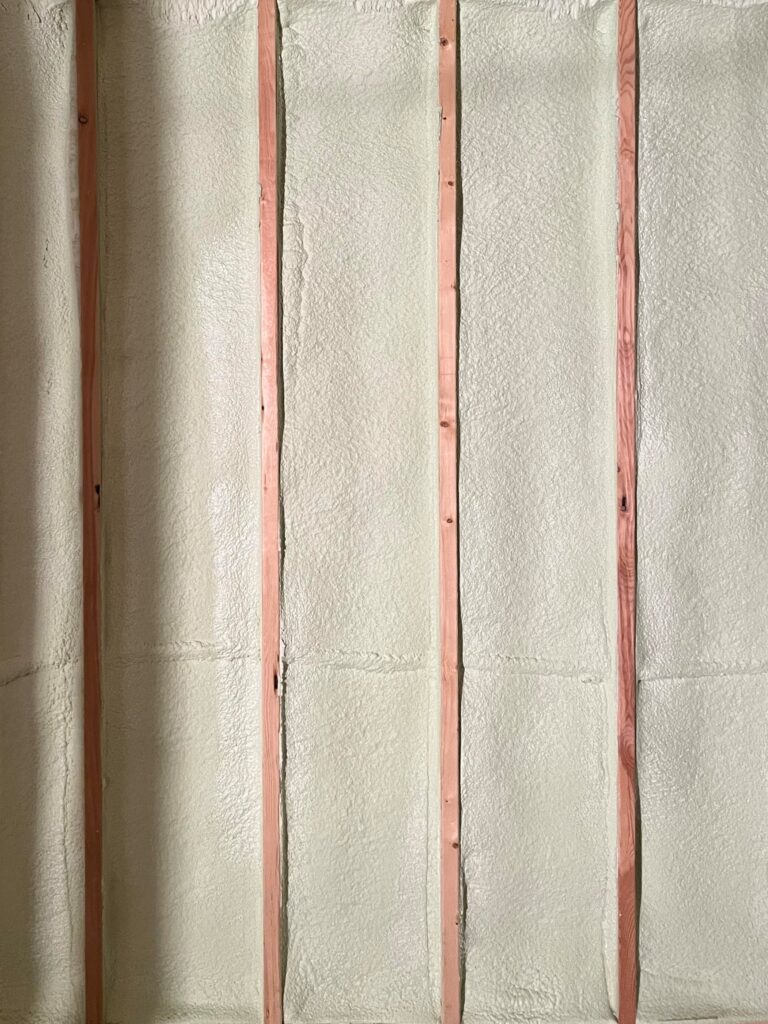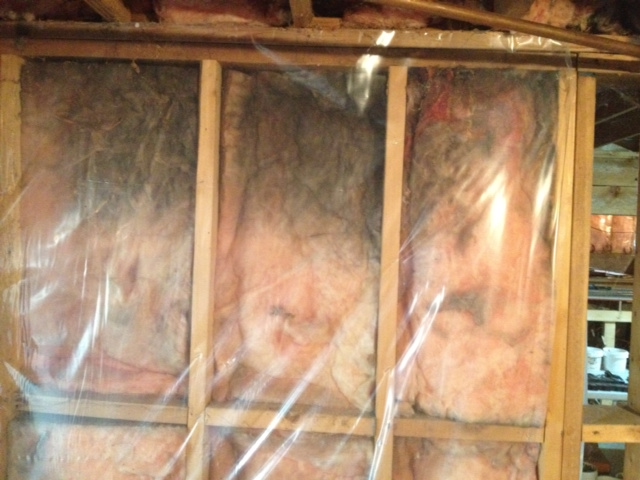Spray Foam Walls
Spray foam insulation is considered to be the best option for insulating a wall for several reasons:
Superior insulation performance: Spray foam insulation has a higher R-value (thermal resistance) per inch of thickness compared to other types of insulation, such as fiberglass or cellulose. This means that it provides better insulation performance and can help to reduce energy costs.
Air sealing properties: Spray foam insulation can seal gaps and cracks in the wall, providing a tight air seal. This helps to prevent air leakage and can reduce drafts, which can contribute to energy loss and decreased indoor comfort.
Moisture barrier: Spray foam insulation can also act as a moisture barrier, preventing the infiltration of water and moisture into the wall cavity. This can help to prevent issues such as mold growth and can improve the durability of the wall.
Longevity: Spray foam insulation is long-lasting and does not settle or compress over time. This means that it can maintain its insulation performance for the life of the building.
Overall, spray foam insulation is an excellent option for insulating a wall due to its superior insulation performance, air sealing properties, moisture resistance, and long-lasting durability. However, it is important to have it installed by a professional to ensure proper application and safety precautions are taken.

Spray Foam prevents Insulation Failures
There are a few factors that can cause batt insulation to fail over time:
Moisture: Batt insulation can absorb moisture, which can reduce its insulating properties and promote the growth of mold and mildew.
Settling: Batt insulation can settle over time, which can create gaps and reduce its insulating properties.
Compression: Batt insulation can be compressed if it is not installed properly or if weight is placed on it, which can reduce its insulating properties.
Air leakage: Batt insulation is not effective at preventing air leakage, which can reduce its overall effectiveness at insulating a space.
Spray foam insulation can help prevent these issues from occurring by providing a continuous, airtight seal that does not allow for moisture, settling, or compression. Spray foam insulation expands to fill all gaps and crevices, creating a seamless barrier that does not allow for air leakage or moisture infiltration. This helps to maintain the insulation’s effectiveness over time, and can also help to improve indoor air quality by preventing the growth of mold and mildew.

